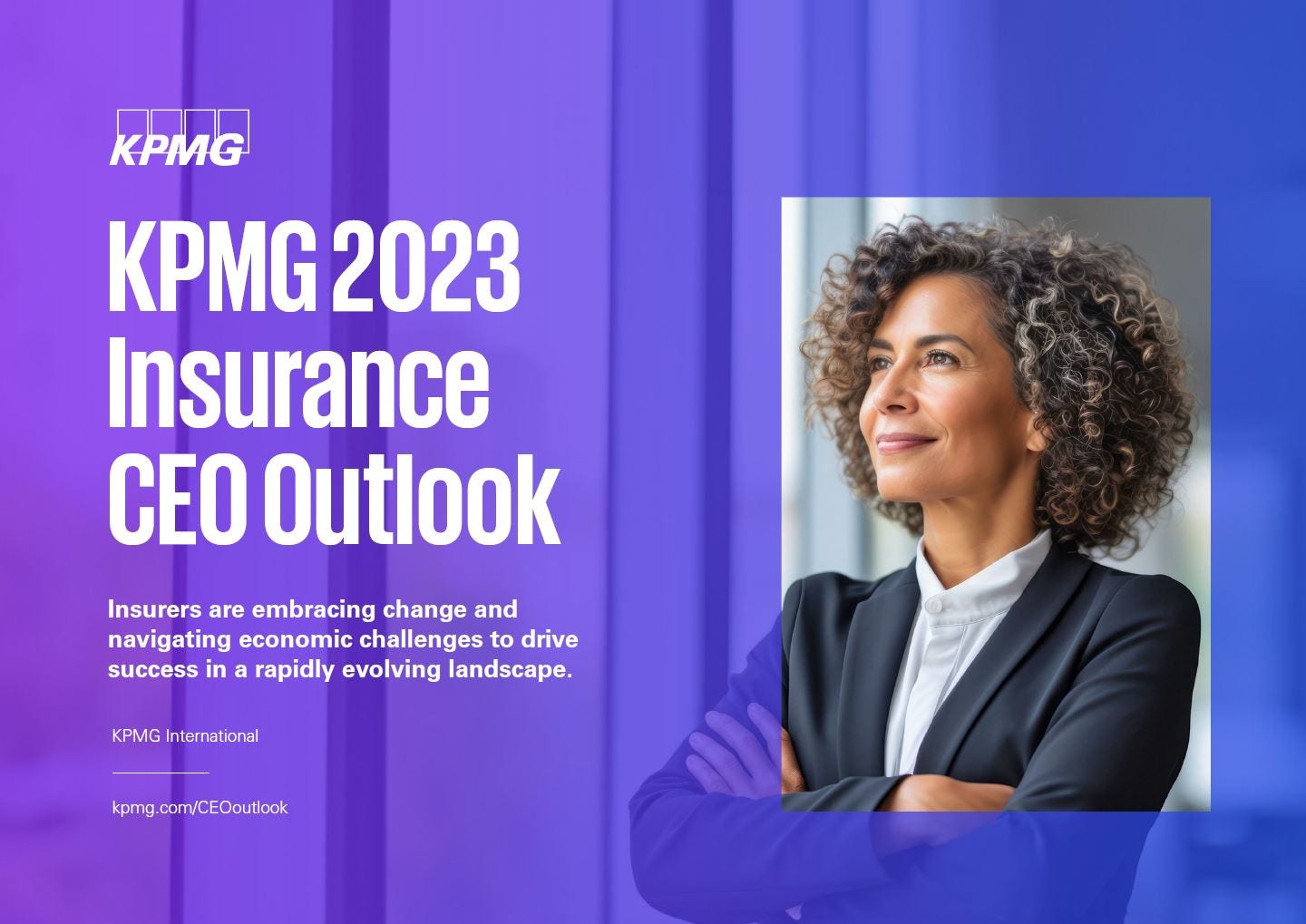In an unpredictable operating environment characterized by geopolitical tensions, high inflation and rising costs, CEOs continue to face an array of challenges and opportunities. With change becoming almost a constant, KPMG International surveyed 128 CEOs to gain a deep insight into their views and perspectives on the industry and wider economic landscape now and over the next three years.
The picture that emerges is one of overall confidence about the path ahead, but tempered by warning lights that mean caution is also required. According to insurance CEOs, political uncertainty due to ongoing regional tensions has become the top threat to organizational growth over the next three years, followed by emerging/disruptive technology risks and interest rate risk. Inflation has risen and interest rates have moved on an upward curve. Technology is disrupting traditional strategies and leaders will need to remain resilient to keep insurance firms moving progressively forward on the journey of change and transformation that they are on, especially with new developments like generative AI holding so much potential to reimagine aspects of how insurance businesses can operate.
Download this latest report to take a detailed look at what insurance CEOs have to say about the key trends impacting the industry in an ever-evolving market.
KPMG 2023 Insurance CEO Outlook
Discover key priorities and industry insights from global insurance leaders as they navigate a fast changing landscape

The insurance economic outlook
The growth confidence of insurance CEOs, while remaining solid, has comparatively reduced year-on-year. Three-quarters (75 percent) of CEOs are confident about the growth prospects for the insurance industry, down from 90 percent, while 78 percent are confident about the growth of their own organization specifically, a fall from 87 percent a year prior.
Insurance CEOs pinpoint cyber crime as a pressing concern (82 percent), closely followed by the cost of living (79 percent) which may restrict their customers’ ability or appetite to take out insurance products. From a wider strategic perspective, political uncertainty and emerging/disruptive technology are considered the top two threats to growth.
Three key areas of consideration for insurance organizations:
Leveraging technology and AI:
Insurance CEOs are putting technology and digitization at the heart of their efforts to modernize their organizations, driving up efficiency, streamlining processes and enabling a more customer-centric approach. Many insurance organizations have already embarked upon digital transformation journeys – this has become increasingly imperative as agile Insurtechs, new entrants and emerging technology have come into the market.
Leaders are also very cognizant of the cyber security risks posed by generative AI. Eighty-five percent of CEOs agree that it is a “double-edged sword” in that it may aid in the detection of cyber attacks – but also provide new attack strategies for adversaries.
Enhancing the impact of ESG:
The environmental, social and governance (ESG) agenda is increasingly recognized by CEOs as an indispensable part of their corporate strategy. Nearly three-quarters (72 percent) of insurance CEOs say that ESG is fully embedded into their business as a means to create value. And despite rising regulatory requirements, 75 percent of leaders believe they have the capability and capacity to meet new reporting standards.
ESG represents a huge opportunity for insurance businesses to create differential growth. The challenge is to integrate this into their firm’s strategy and embed it within existing operations. Strong leadership is needed to keep driving this forward despite all the uncertainties in the economic and political environment. For those that get it right, the returns should follow.
The workforce proposition:
Businesses are only as good as their people. Maintaining a strong employee value proposition to attract and retain staff is high on the CEO agenda. Over eight in ten (81 percent) of CEOs expect to increase headcount over the next three years, although this is slightly down from 2022 (87 percent). This drop is perhaps a sign of the economic challenges, but also the expected impact of AI and automation – rather than lay-offs, this is more likely to involve moving people away from manual, repetitive tasks into more value-adding roles, with an emphasis on upskilling and training.
This report highlights that leaders have responded to uncertainty with a purpose-driven, resilient approach, re-evaluating strategies and adopting collaborative leadership. While there are profound challenges ahead, for the right leaders this provides an opportunity to steer economies and society in the right direction. If you would like to discuss the survey findings and how these may impact your business, please contact a member of the team.
Connect with us

Roger Jackson
Global Insurance ESG Lead
KPMG International
About the KPMG 2023 CEO Outlook methodology:
The 9th edition of the KPMG CEO Outlook, conducted with 1,325 CEOs between 15 August and 15 September 2023, provides unique insight into the mindset, strategies and planning tactics of CEOs.
All respondents have annual revenues over US$500M and one-third of the companies surveyed have more than US$10B in annual revenue. The survey included leaders from 11 markets (Australia, Canada, China, France, Germany, India, Italy, Japan, Spain, UK and US) and 11 key industry sectors (asset management, automotive, banking, consumer and retail, energy, infrastructure, insurance, life sciences, manufacturing, technology, and telecommunications).
NOTE: Some figures may not add up to 100 percent due to rounding.






